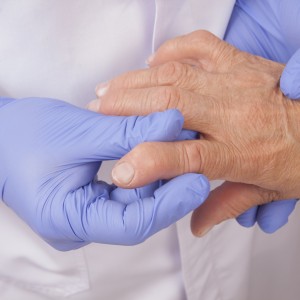 Ulster University in the United Kingdom recently launched a new patient informed Research Advisory Group for rheumatoid arthritis (RA) based on Ulster University’s new Centre for Stratified Medicine at C-TRIC and in the Western Health Trust. The goal of this initiative is to provide RA patients with the opportunity to share with scientists and clinicians how this autoimmune disease affects them and what projects they would like to see developed at the Centre.
Ulster University in the United Kingdom recently launched a new patient informed Research Advisory Group for rheumatoid arthritis (RA) based on Ulster University’s new Centre for Stratified Medicine at C-TRIC and in the Western Health Trust. The goal of this initiative is to provide RA patients with the opportunity to share with scientists and clinicians how this autoimmune disease affects them and what projects they would like to see developed at the Centre.
“The whole point of Stratified Medicine and the focus of the Centre is to identify patients who are at risk of disease and then to work out what treatments work best for them,” said Dr. David Gibson from Ulster University in a news release. RA causes chronic inflammation and pain in the joints and other parts of the body due to an overreaction of the body’s own immune system.
Researchers at the center are trying to identify genetic biomarkers to predict which treatments are more appropriate for each patient, allowing an earlier treatment with reduced side effects for the patients and a reduction in the costs. “So we do that by looking at their DNA, which we inherit from our parents, and we aim to identify differences in the complex DNA code which distinguish an individual who suffers from arthritis compared to somebody who doesn’t and furthermore we look for differences which identify whether an arthritis patient will respond to a particular drug or not.” explained Dr. Gibson. “There’s only 0.1% difference in the DNA code between any two individuals; the change or the difference in DNA codes is what we are particularly interested in. These variations, some of which dictate eye color, can also determine risk of disease and how you might respond to drugs.”
Ulster University has three main goals for the center: the first one was accomplished with the launch of the patient research advisory group, the second one is to determine patterns or biomarkers in the patient’s DNA to assist on treatment selection and disease control, and the third one is to conduct home monitoring of RA patients, where inflammation, drug dosages control and disease management is performed at home by the patient that then sends their samples or results to their physician or a lab.
“How can we reliably identify who will develop arthritis in the future?” asked Dr. Ian Bruce, Professor at the University of Manchester at the launch of the research advisory group. Dr. Bruce’s research is focused on preventing patients’ joints from becoming inflamed and worn, and to ultimately decrease the disease’s impact on the quality of life, namely in terms of everyday tasks restrictions and time out from work.
An early identification of the disease and of the most adequate treatment is expected to allow patients to be treated quicker and return to their normal lives faster. “But we’re talking about a diagnosis that doesn’t wait until symptoms arrive, because it’s arguably been going on for some time and we can miss a window of opportunity,” added Dr. Gibson.
RA patients who would like to get involved or to obtain more information can contact Dawn Small on 028 7161 1294 or via [email protected].


